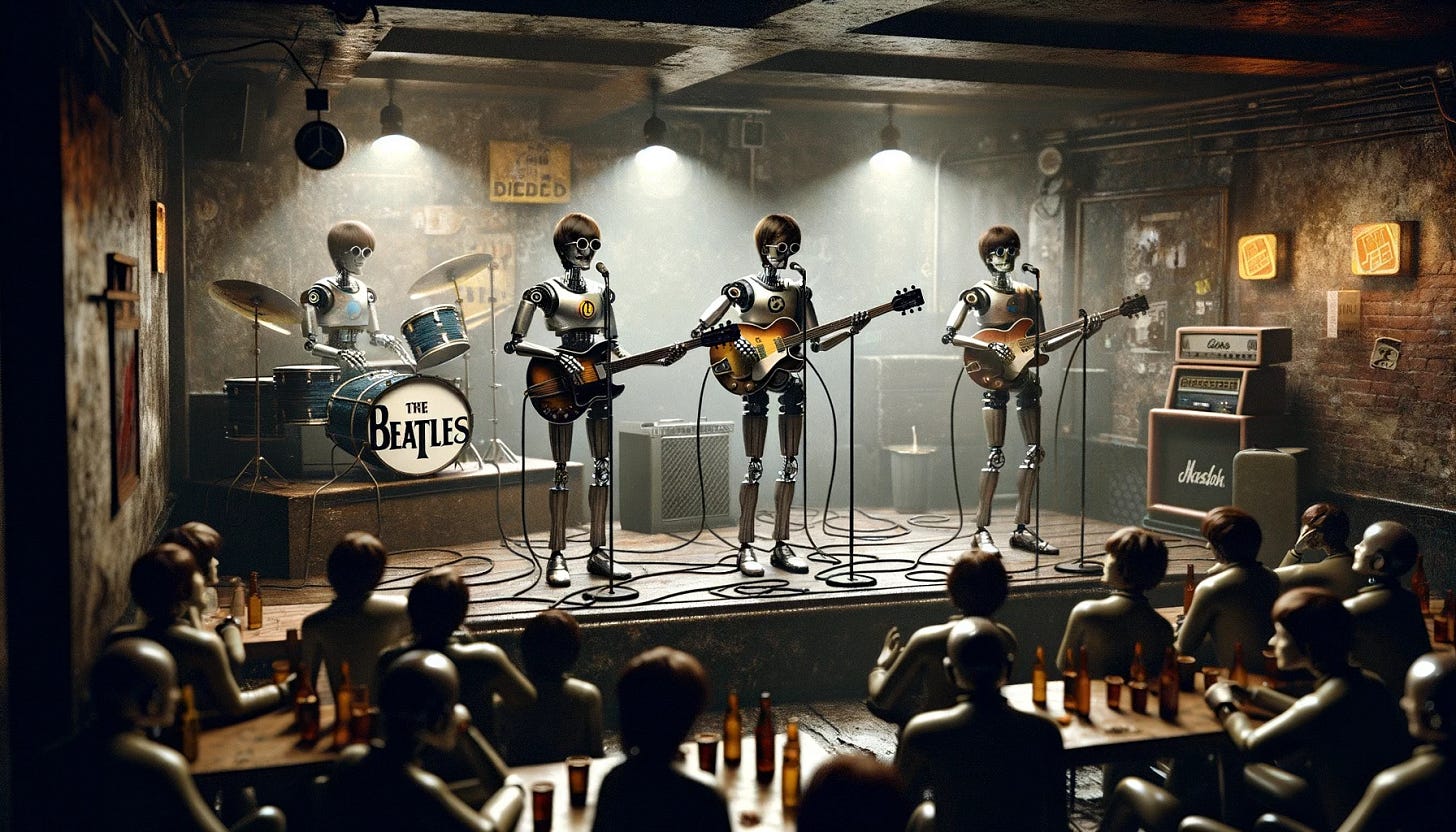The 10% Who Move the World
Are you one of them?
New stuff is never adopted by everyone at once. There’s a slow at first, later steep rate of acceptance to even the best innovations.
When ChatGPT was 5 days old, a striking graph went viral. OpenAI’s chatbot had reached, faster than any other tech consumer product in history, 1 million users.
It was surprising not because OpenAI was mostly unknown at the time, because ChatGPT was a low-key research project, or because it wasn’t an intuitive tool at all and came without a manual (that’s still non-existent, for your interest).
Those things too, but the most surprising reason to me was that ChatGPT had seemingly broken one unbreakable rule of consumer technology: No tool is ever that popular from the onset.
ChatGPT hipsters
Hipsters … are an information sorting algorithm. They discover things, then place them on the altar of Fame so everyone else can enjoy them. Before the Beatles were so canonical that they were impossible to miss, someone had to go to some dingy bar in Liverpool, think “Hey, these guys are really good”, and report that fact somewhere everyone else could see it.
That’s Scott Alexander about Sam Kriss’ conceptualization of (traditional) hipsters’ role in society.
ChatGPT had no hipsters.
Or better, the stage of hipster-ism to ChatGPT lasted a few hours.
Once I logged on to Twitter on November 30, 2022 people were already going crazy about it. People who I had previously never seen saying a single thing about AI were sharing screenshots with thousands of likes. I was dumbfounded.
ChatGPT was already popular before it had had time to be unpopular.
What happened next is history.
The generative AI revolution didn’t start with ChatGPT, though. GPT-3 first, then the image generator triad—DALL-E, Midjourney, and Stable Diffusion—had already hinted at what’d come.
ChatGPT made it real for outsiders. It made the news. Weeks and weeks in a row. Newspapers made entire sections dedicated to generative AI.
It’s no wonder why people criticized me when I argued ChatGPT’s fast adoption didn’t imply a revolution if only 1 in 50 people found it truly valuable (as a May 2023 study found):
Generative AI is many things—useful, interesting, entertaining, and even problematic—but it’s not a world-shaking revolution. Very few things in history have withstood the test of time to be called “revolutionary.” Generative AI doesn’t seem to be one of them.
How can ChatGPT be unique in how quickly it got popular yet still not be deserving of the label “revolutionary”? (One possibility is I’m just wrong, but let’s skip that one shall we?)
I’m just waiting
My hunch turned out to be right.
ChatGPT grew extremely fast but it didn’t maintain that rate because people still don’t understand its value or are willing, unlike pioneers and early adopters, to try and fail, try and fail, try and fail, until eventually, after many of such defeating loops that would destroy anyone else, they succeed.
It’s not that ChatGPT didn't experience a hipster phase (slow and then fast), it’s that the phases are changing (fast and then… plateau). Social media distribution of trends accelerates everything (look at the adoption of Thread and the subsequent des-adoption), but that doesn’t extend to later continual growth.
People are more curious about trying new stuff because hipsters have 1000x more reach than they had when the Beatles were filling dingy bars in Liverpool. New things that wouldn’t have reached us before social media do now. But people are equally closed-minded about truly integrating innovations into their lives.
ChatGPT screenshots looked cool but trying and failing (x10) is still as hard as it’s ever been.
You don’t have to believe me. Here’s the data: The Boston Consulting Group found that even now, 14 months after ChatGPT reached its first million users, 90% of CEOs (N=1400+) across 50 markets are still waiting.
“Waiting for what?” you might ask, with the same dumbfounded face I made when I saw ChatGPT had already reached my always-tech-oblivious friends 24 hours after launch.
They’re waiting for the hipsters to tell them the Silicon Beatles are really good, of course. They’re waiting for a sign that it’s not dangerous to go alone in an uncertain world.
It’s not that ChatGPT can’t be or won’t be revolutionary. It’s that most people are still waiting for the 10% who move the world to tell them it’s okay to be part of the 90%.
And you, which one are you?



Well said! Most people are in the late adopter or laggard phases of innovation.
I think people are caught on the hype but most people don’t actually use AI in any practical sense.
Understanding when to use it vs when not to use it is going to be a very valuable skill in the future to prevent wasted time and effort, but the only way to get to that state is through trial and error ✨
Some probably still have VCRs.